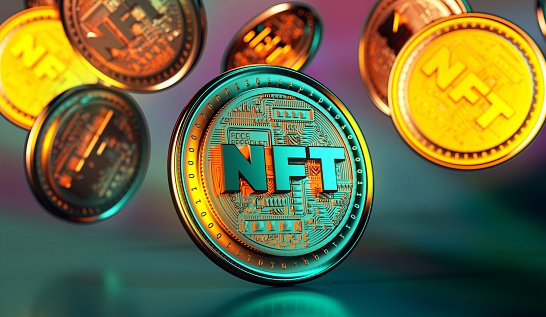Introduction.
NFTs are everywhere these days. From digital art and music to virtual real estate and gaming items, they’ve quickly become one of the most talked-about topics in tech and finance.
But for many people, they’re also a bit of a mystery. What are NFTs? How do they work? And why are people spending millions on them?
By the end of this post, you’ll have a clear picture of what NFTs are, why they matter, and what you should know before getting involved.
Let’s dive in.
What are NFTs?
NFT stands for non-fungible token. That might sound technical, but it just means it’s a unique digital item that can’t be replaced with something else.
Unlike cryptocurrencies like Bitcoin or Ethereum, where one coin is the same as another, NFTs are one of a kind. Think of them like digital collectables—each one is distinct and can’t be swapped one for one another.
NFTs are stored on a blockchain, which is a digital ledger that records ownership and transactions. This technology ensures that each NFT is authentic and its ownership history is transparent.
Why are NFTs Important?
NFTs have revolutionized the way we think about ownership in the digital world. Before NFTs, it was hard to prove who owned a digital file or piece of art, as anything online could easily be copied or shared.
NFTs solve this problem by creating a unique “digital signature” for each item, making it possible to buy, sell, and own digital assets securely.
Here’s why this matters:
- Empowering Creators: Artists, musicians, and other creators can sell their work directly to fans, often earning royalties each time their NFT is resold.
- New Investment Opportunities: NFTs have opened up a new way to invest in digital assets, similar to how people invest in art or collectables in the physical world.
- Expanding Digital Ownership: From virtual real estate to in-game items, NFTs are shaping the future of the digital economy.
10+ Crucial Things You Need to Know About NFTs
1. They’re Not Just for Art
While digital art gets a lot of attention, NFTs can represent anything—music, videos, virtual items, domain names, and even tweets. For instance, Jack Dorsey’s first tweet sold as an NFT for $2.9 million.
2. Environmental Impact
NFTs aren’t without controversy. The blockchain networks they’re built on often consume a lot of energy.
Ethereum, where most NFTs are created, is addressing this with updates like Ethereum 2.0, which aims to reduce energy use by 99%.
3. Not All NFTs Are Expensive
While some NFTs sell for millions, many are affordable, with prices starting as low as a few dollars. The value depends on factors like rarity, demand, and the creator’s popularity.
4. Royalties for Creators
One of the coolest features of NFTs is that creators can earn royalties each time their work is resold. This isn’t possible with traditional art or music sales.
5. You Don’t Need to Be a Tech Genius
You don’t need deep technical knowledge to buy or sell NFTs. Platforms like OpenSea, Rarible, and Foundation make it easy to get started.
6. Watch Out for Scams
Unfortunately, the NFT space has seen its share of scams. Always double-check the authenticity of an NFT and use trusted platforms for transactions.
7. Not All NFTs Will Increase in Value
Just like any investment, there’s no guarantee that an NFT will go up in value. Some might even lose value over time.
8. It’s Not All About Ownership
Owning an NFT doesn’t always mean you own the copyright or intellectual property. Make sure you understand what rights come with your purchase.
9. NFTs in Gaming
Gamers are using NFTs to buy, sell, and trade virtual items like weapons, skins, and characters. Games like Axie Infinity and Decentraland are leading this trend.
10. Virtual Real Estate
Yes, you can own land in virtual worlds! Platforms like Decentraland and The Sandbox allow users to buy, develop, and sell virtual properties.
11. NFT Communities
Many NFTs come with access to exclusive communities, events, or experiences. For example, owning a Bored Ape NFT can get you into private events and even yacht parties.
FAQs
1. Are NFTs safe?
NFTs are generally secure, but like any online transaction, they’re not immune to risks. Use trusted platforms and store your NFTs in a secure wallet.
2. Do I need cryptocurrency to buy an NFT?
Yes, most NFTs are purchased using cryptocurrencies like Ethereum. You’ll need to set up a digital wallet and buy crypto to get started.
3. Can I create my own NFT?
Absolutely! Platforms like OpenSea and Rarible make it easy to mint (create) your own NFTs.
4. Are NFTs just a trend?
While some see NFTs as a fad, others believe they’re here to stay, especially as they expand into areas like gaming, fashion, and virtual reality.
Conclusion
NFTs are more than just a buzzword—they’re reshaping how we think about ownership, creativity, and the digital economy.
While they come with risks and challenges, they also offer exciting opportunities for creators, investors, and collectors.
So, what do you think—are NFTs the future, or just a passing trend? Let me know!





GIPHY App Key not set. Please check settings